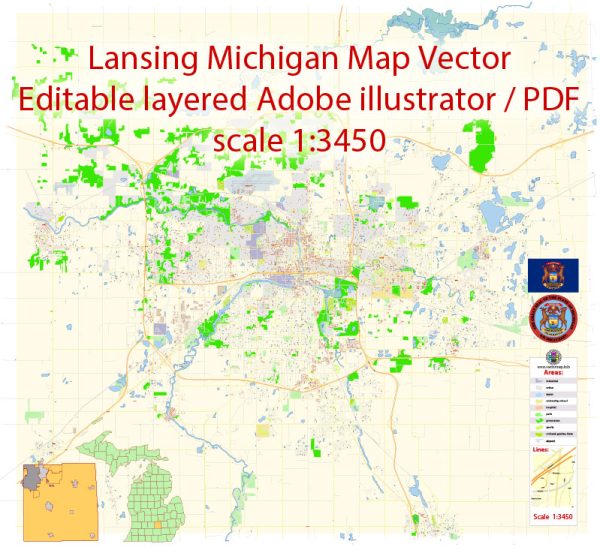Lansing, the capital city of Michigan, is located in the central part of the state and is situated along the Grand River. Water resources in Lansing, like in many other cities, play a vital role in its daily life, economy, and environment. Here are some key aspects of Lansing’s water resources:
- Grand River: The Grand River runs through Lansing and is a significant water resource for the city. It provides a source of freshwater for various purposes, including drinking water, recreation, and as a habitat for aquatic life.
- Water Supply: The city’s primary source of drinking water is the Grand River. The water is treated at the city’s Water Resource Recovery Facility (WRRF), which ensures it meets quality and safety standards before distribution to residents and businesses.
- Wastewater Treatment: Lansing has a wastewater treatment plant (WRRF) responsible for treating and processing wastewater from homes and industries. This facility helps maintain the water quality of the Grand River and protect the environment.
- Stormwater Management: Lansing has stormwater management programs in place to handle excess rainwater and reduce the risk of flooding and pollution of water bodies. These programs help manage and protect the quality of the water resources in the city.
- Parks and Recreation: Lansing’s water resources, including the Grand River and smaller bodies of water like lakes and ponds, provide opportunities for recreational activities such as boating, fishing, and hiking in nearby parks and natural areas.
- Conservation Efforts: The city and local organizations work together to protect and conserve water resources, including efforts to reduce water pollution, prevent the introduction of invasive species, and maintain the health of the aquatic ecosystems.
- Regulation and Monitoring: Water quality and usage in Lansing are regulated and monitored to ensure compliance with environmental standards and to safeguard public health. Government agencies, including the Michigan Department of Environment, Great Lakes, and Energy (EGLE), play a crucial role in overseeing water resources in the state.
Lansing, like many cities, faces challenges related to water resources, including water quality concerns, infrastructure maintenance, and the impact of climate change on water availability and management. As such, ongoing efforts in water resource management and conservation are essential to ensuring the sustainability of water resources in the city.


 Author: Kirill Shrayber, Ph.D. FRGS
Author: Kirill Shrayber, Ph.D. FRGS